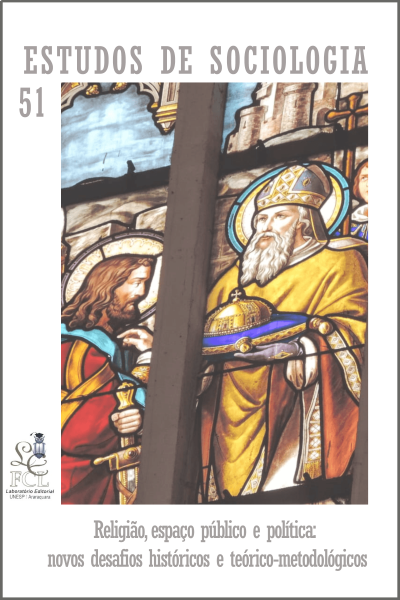Religious affiliation and economic development in Brazil
factors associated with the constitution of a progressive mentality among catholics and pentecostal evangelicals
DOI:
https://doi.org/10.52780/res.15347Keywords:
Development, Religion, Pentecostalism, Renewalist, Democratic capitalism, Social mentalityAbstract
This article deals with the relationship between religion and a set of values and attitudes, named by Harrison as “progressive mentality”, considered favorable to economic development. Using data from a survey conducted in Rio de Janeiro, the authors investigate the relationship between religious affiliation and this mindset. Using multivariate data analysis techniques, the research seeks to identify the association between attitudes and religious affiliation. Religious individuals without institutions and those with low or latent religiosity without affiliation showed to be more oriented by behaviors which give centrality to the individual seen in his uniqueness, while members of religious groups demonstrated more socially oriented attitudes. Evidence suggests convergence in the behavior pattern of Charismatic Catholics and Pentecostal Evangelicals (Renewalists), although Charismatics demonstrate greater affinity with a socioeconomic system of a capitalist-democratic type, combining specific social and individual virtues of a progressive mentality.
Downloads
Downloads
Published
How to Cite
Issue
Section
License

À revista Estudos de Sociologia ficam reservados os direitos autorais pertinentes a todos os artigos nela publicados.
Os artigos publicados e as referências citadas na revista Estudos de Sociologia são de inteira responsabilidade de seus autores.
A Estudos de Socilogia utiliza a licença https://creativecommons.org/licenses/by/4.0/ (CC BY), que permite o compartilhamento do artigo com o reconhecimento da autoria.



